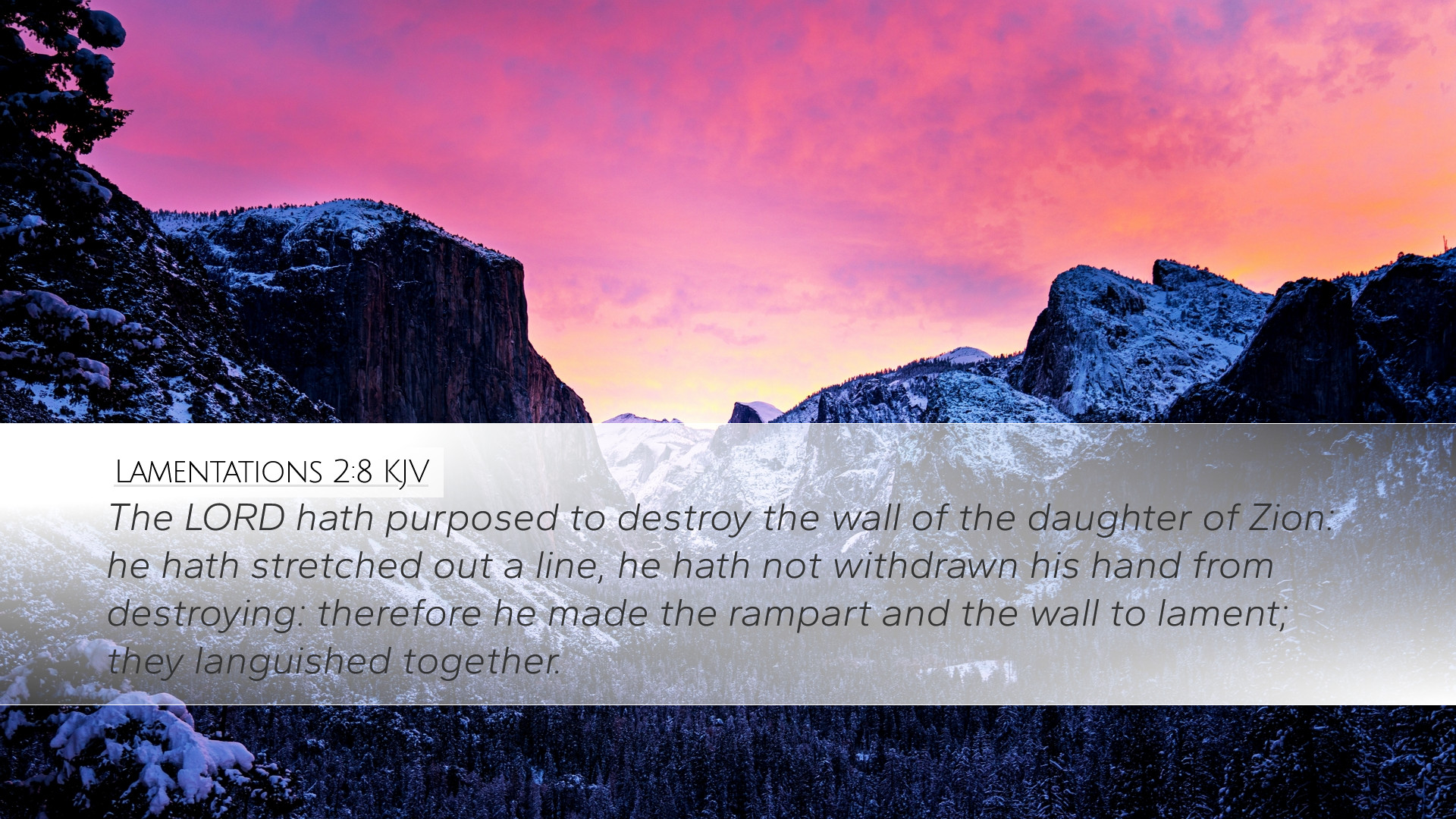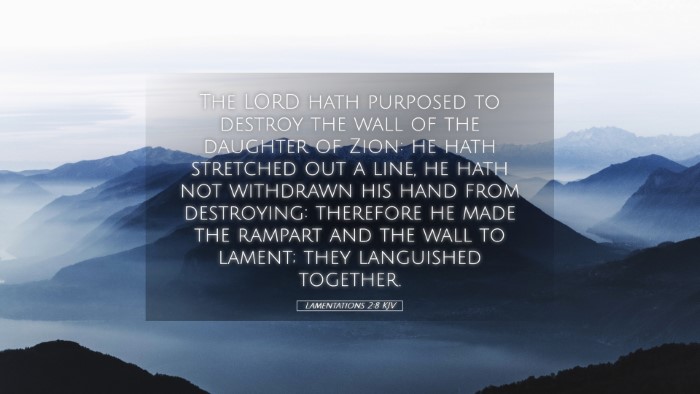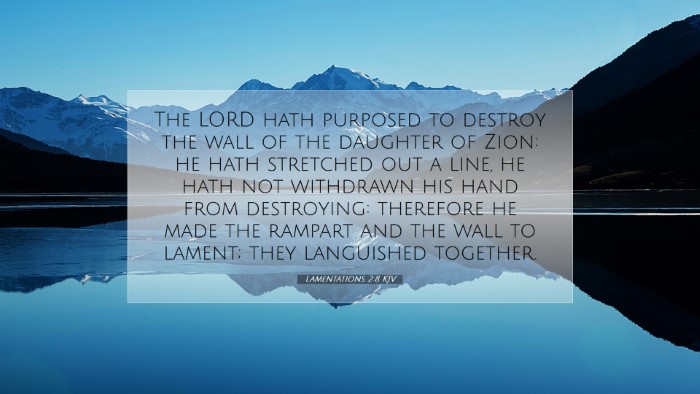Lamentations 2:8 Commentary
Verse: "The Lord determined to lay in ruins the wall of the daughter of Zion; he stretched out the measuring line; he did not restrain his hand from destroying; and he caused rampart and wall to lament; they languished together."
Introduction
The book of Lamentations is a profound expression of grief and lament in response to the destruction of Jerusalem. In Lamentations 2:8, the prophet vividly articulates God's sovereign decision regarding the fall of Jerusalem's defenses, symbolizing His judgment upon a rebellious people. In this commentary, we delve into insights from Matthew Henry, Albert Barnes, and Adam Clarke to unpack the theological implications and the depth of meaning contained within this verse.
The Divine Decree
Matthew Henry emphasizes the sovereignty of God in the unfolding calamities of Jerusalem. He notes, "The Lord hath purposed to destroy the wall of the daughter of Zion." This highlights that the destruction was not merely a consequence of human actions but was divinely ordained. Henry articulates that God's purposes are often inscrutable, yet they are executed with precision, and at times, with heavy-hearted resolve.
The Measuring Line
Albert Barnes provides insight into the metaphor of the "measuring line." He suggests that God's judgment is not arbitrary but deliberate and calculated. God utilizes a measuring line to mark out the areas for destruction and to signify that the city will be laid bare. This action indicates both planning and the inevitability of the outcome, showing that God ensures every detail of His judgment aligns with His divine will.
The Hand of Destruction
The phrase "he did not restrain his hand from destroying" raises significant theological considerations about God's nature. Adam Clarke notes that God's hand signifies His active involvement in history and judgment. There is a solemn truth that God, in His holiness, cannot overlook sin. Clarke comments that the justice of God dictates that He must act against unrepentant sin, highlighting His faithfulness to His character.
Expressions of Grief
The imagery of the "rampart and wall lamenting" depicts a deep mourning for what once was. Matthew Henry explains that the very structures meant to protect and provide security now stand as objects of desolation, expressing sorrow for their fate. This element of mourning encapsulates not only the physical destruction but also the spiritual desolation wrought by abandoning faithfulness to God.
Theological Reflections
- God's Sovereignty: The verse underscores God's absolute authority over nations and cities, reminding readers that all events unfold according to His divine plan.
- Judgment and Mercy: While God's judgment is evident, buried within is the hope that those who repent can experience His mercy. This duality is essential for understanding the full scope of God's character.
- Human Responsibility: The lamentation is a call for self-reflection among the people of God. There lies a compelling invitation to consider one's actions and their consequences before the Holy Judge.
Conclusion
Lamentations 2:8 serves as a stark reminder of the weight of divine judgment and the seriousness of sin. The insights from Henry, Barnes, and Clarke contribute to a deeper understanding of this profound lamentation. As the wall of Jerusalem wept, so too should the people of God recognize the need for authentic contrition and a return to righteousness. In examining this verse, we find a poignant blend of despair and hope, a call to acknowledge God's sovereignty, and an urging towards repentance that is as relevant today as it was in the time of the prophet.


